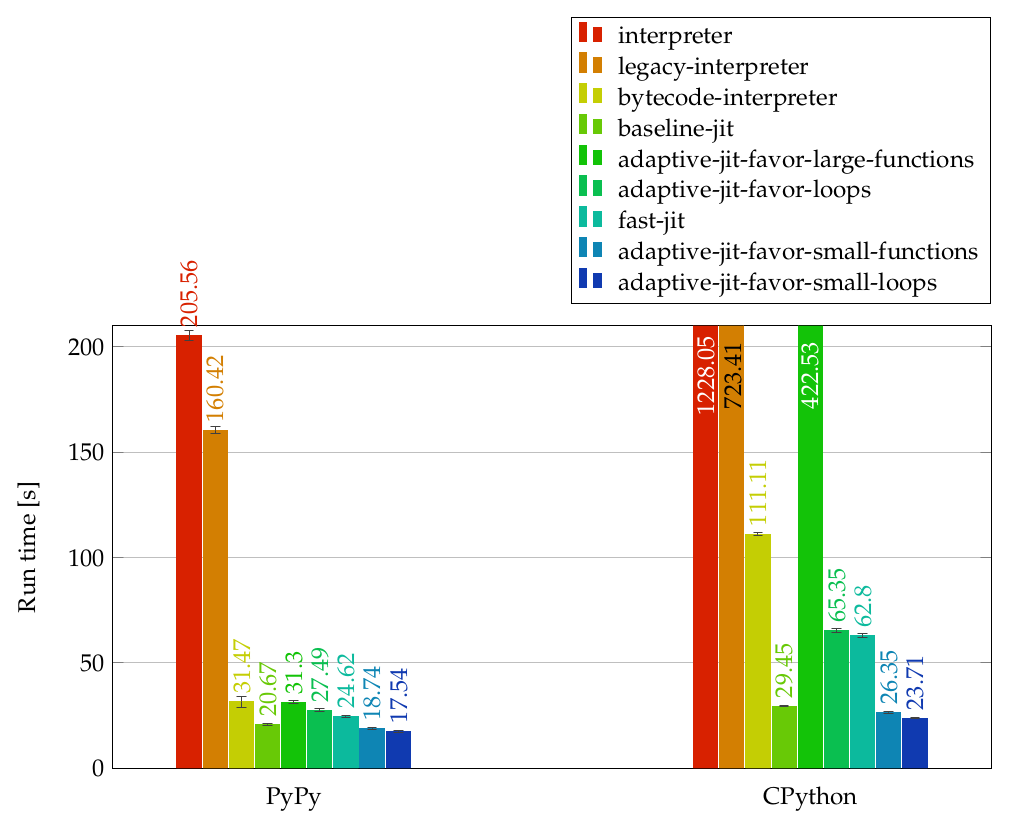Honors Program Project: Modelverse JIT Compiler
The University of Antwerp’s Faculty of Science has an optional honors program aimed at introducing second-year and third-year undergraduate students with excellent grades to the scientific world. It does so through a series of talks, insight programs at three different research groups of one’s choice, and a research project. I was invited to and participated in the very first edition of that honors program.
I embarked on my honors program research project with Professor Hans Vangheluwe. My project was to create a tiered just-in-time compiler (JIT) that converts Modelverse bytecode graphs to Python code.
- I implemented the JIT as a new Modelverse compiler that serves as a drop-in replacement for the reference Modelverse interpreter.
- The JIT uses a whole-function compilation strategy.
- To execute mutable functions, the new compiler can fall back to the reference interpreter.
- The JIT has three tiers: (1) a fast bytecode interpreter, (2) a baseline JIT compiler, and (3) an optimizing JIT compiler that generates fast code based on an intermediate representation in Static Single Assignment (SSA) form.
- The new compiler tries to pick tiers for functions in a way that minimizes the sum of function run times and compile times. Initially, a heuristic picks a tier for each function. Repeated calls to the same function prompt the compiler to recompile it with a tier that generates faster code.
- For typical Modelverse workloads, the tiered JIT is approximately 37 times faster than the previous virtual machine.
My worked is open source and can be found on the jit branch of my Modelverse fork.
You can find my report here.

